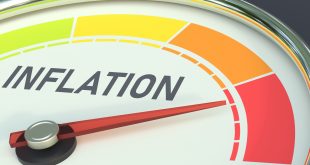US Vice President Kamala Harris defended the Build Back Better (BBB) stimulus plan during an interview on CBS’ “Face The Nation” TV show. Harris stressed inflation and coronavirus as major concerns and top priorities in 2022. “The United States must address the rising cost of consumer goods”, she added.
Risk sentiment decreased starting early Monday through Tuesday’s morning as global traders began to cheer the holiday mood during the final days of 2021. Traders’ thought over and over the previously positive risk catalysts amid an absence of major data or events.
Traders and investors tended to ignore escalating numbers of Omicron cases despite the current increase of infections. Most attention was drawn to the mixed updates over Biden’s BBB plan and geopolitical concerns surrounding Russia and Ukraine, not to forget the positive retail sales data from the US.
Omicron resulted in the cancellations of over 4,500 flights during the Christmas weekend. However, global policymakers remain hopeful to overcome the pandemic amid promising studies showing lesser hospitalizations.
Sunday’s report by Mastercard showed that the US retail sales rose 8.5% during this year’s holiday shopping season and this data continued to attract significant portion of attention from market participants.
Strong holiday season US retail sales and studies showing fewer hospitalizations due to the Omicron variant offered a positive week-start to the traders after the Christmas holidays.
Headlines from the China and the Chinese Finance Ministry, suggested further easy money to help sustain the growth of the world’s second-largest economy, also favored the risk appetite.
On Thursday, the market sentiment improved, despite worries about the Omicron variant triggering the cancellation of 3,000 plus flights on Christmas weekend.
Monetary Policies and World Central Banks
China will roll out fiscal policies proactively to stabilize economic growth in 2022, the Finance Ministry said at its briefing on Monday. “Fiscal expenditures will be kept up to bolster growth and the central government will step up transfers to local governments to support necessary spending,” the Ministry said.
The People’s Bank of China’s (PBOC) liquidity injection jumped the most in two months, in the face of the year-end demand for cash from the banking system.
US Inventories rose rapidly as businesses sought to stock up for the holiday shopping season. Container ships are anchored off the ports of Long Beach and Los Angeles to unload imported goods.
The trade deficit in goods surged by 17.5% in November to set an all-time high, largely reflecting faster improvement in the U.S. economy compared to most other countries.
An early or advanced look at the trade gap in goods showed that it increased to $97.8 billion in November from $83.2 billion in October, the U.S. Census Bureau said. The U.S. is on track in 2021 to post its biggest annual shortfall on record.
Data released on Wednesday showed sky-rocketing home prices are weighing on the possibility of home ownership while the goods trade deficit – the chasm between imports and exports – yawned to its widest ever.
Signed contracts for the sales of pre-owned U.S. homes (USNCH=ECI) unexpectedly dropped by 2.2% last month, according to the National Association of Realtors (NAR). The reading marked a reversal from October’s 7.5% surge and defied the 0.5% increase analysts expected.
Pending home sales, along with building permits and applications for loans to purchase homes, is among the sector’s most forward-looking indicators, and provides further evidence that the housing market is beginning to buckle under the weight of its own success.
Separately, the Commerce Department released its advance take on trade balance and wholesale inventories for November.
The report showed the gap between the value of merchandise imported from abroad versus domestic goods exported to U.S. trading partners widened by nearly 18% to a record $97.78 billion.
As the U.S. economic recovery from the global health crisis outpaces much of the world, and with the dollar steadily gaining strength since September – which has made American-made goods more expensive – the trade deficit has weighed on GDP for the last five consecutive quarters.
Looking ahead, it is expected the trade deficit to remain historically elevated until pandemic worries ease. Rising Covid cases abroad once again threaten to constrain global demand, risking an even wider deficit if export growth slows more than imports.
The Bank of Korea (BOK) Governor Lee Ju-yeol said that they are committed to adjusting policy interest rates as an economic recovery takes shape and price pressures tighten heading into 2022.
China has deferred an estimated 200 billion yuan of tax payments for micro, small and medium-sized enterprises in the manufacturing sector in 2021 to help them address difficulties and shore up the industrial economy.
Manufacturing slowdowns and trade issues linked to the pandemic dented China’s economy this summer. The Republic’s official Q3 GDP estimate was 4.9%, a setback from the 7.9% yearly growth pace in Q2. The same issues affected the euro area, where inflation rose to a 13-year peak in September.
Equities
The week started with the S&P 500 Futures surging by 0.11% intraday around 4,720 on Monday. Economists at Credit Suisse look for the S&P 500 Index to move to 4970/5000, potentially as far as 5200.
The S&P 500 surged as Wall Street opens, up some 0.75%, sitting at 4,766.02. The market sentiment further improved, but the other two largest stock indices of Wall Street, the Dow Jones Industrial and the heavy-tech Nasdaq, rose between 0.39% and 1.16%, currently at 36,089.50 and 16,496.92, respectively.
The largest stocks hit were airliners and cruisers, led by Delta Air Lines and United Airlines dipped 2.1% each, while American Airlines fell 2.4%. In the cruise line sector, Carnival fell 3.1%, followed by Royal Caribbean and Norwegian Cruise Line, each dropping 2.8% and 4%.
The S&P 500 had an upward bias from a technical perspective, as shown by the daily moving averages (DMAs) residing well below the index value, with the 50 and the 100-DMA acting as dynamic support levels.
Oil Prices
WTI crude oil started the week’s trading pressured under USD 73 per barrel. The Japanese Trade Ministry announced on Monday that the country is releasing oil from its national reserves in a coordinated effort with other nations to contain prices.
This comes after Japan’s Trade Minister Koichi Hagiuda said last month that Japan would conduct the release as it replaces oil in its stockpiles. Amid quiet markets and above headlines, WTI is trading under pressure just above the $73 mark.
China’s oil consumption is expected to peak at about 780 million tonnes per year by 2030, China National Petroleum Corp (CNPC) Economics & Technology Research Institute (ETRI) said on Sunday.
WTI remained subdued around the $72.55-$73.50 range. However, in the last couple of hours, a spike of $2.5 is mainly attributed to thin liquidity trading conditions, which usually exacerbate any moves in the financial markets.
OPEC ministers are due to hold a meeting on Monday to discuss the appointment of a new secretary general, two OPEC sources said, with Kuwait’s candidate for the job holding widespread support from the group.
Haitham al-Ghais, a former Kuwaiti governor to the Organization of the Petroleum Exporting Countries, is the only candidate for the role, OPEC sources have said. Current OPEC Secretary General Mohammad Barkindo of Nigeria, who helped clinch a deal with non-OPEC producers such as Russia to cut global oil output to balance the market, is due to step down at the end of July once his second three-year term ends.
OPEC and its allies, known as OPEC+, is due to hold a separate meeting on Tuesday to decide output policy. OPEC+, which is unwinding record output cuts made last year, is likely to stick to existing policy and confirm an output increase of 400,000 barrels per day in February. US 10-year Treasury yields dropped on Monday 1.1 basis points (bps) to 1.482%, stepping back from a two-week high flashed the previous day.
Gold
Gold began the week on a back foot, stays near the monthly high. Omicron woes weigh on holiday season, 4,500 flights canceled globally. Gold printed mild gains of around $1,810 during a sluggish Monday morning. The precious metal cheered the US dollar’s temporal weakness, as well as relaxed Treasury yields to print the latest gains around the monthly high, flashed on 17 December.
Gold headed for its first decline in three years on Friday as the global economy recovered, reducing the appeal of safe havens as central banks prepared to raise interest rates to control inflation.
Gold prices have fallen by more than four percent since the beginning of the year, after rising by 48 percent in the previous two years, with the recovery of the global economy, which reduced the demand for safe assets, including gold.
Cryptocurrencies
Major cryptocurrencies retreated amid concerns about the Omicron variant and holiday travel disruptions worldwide.
Bitcoin traded 7.4% lower from 24 hours ago at around USD 47,849. The cryptocurrency was down more than 30% from its record highs at USD 68,990 in November. Bitcoin has had a volatile end of year.
Ether declined 7.6% over the past 24 hours, recently trading at USD 3,801. It was down more than 20% from its record high of USD 4,866 in November.
Shares of crypto trading platform Coinbase Global were dealt a hit Tuesday after cryptocurrencies slumped. Bitcoin, the largest cryptocurrency by volume, dropped 7.8% to $47,873. Ethereum was down 7.6%, Cardano declined 9.9%, and Terra was down 10.3%.
First Week In 2022
The first week of 2022 will have a busy schedule regarding economic data. In the US and Canada, employment numbers and ISM figures are due. Also the Federal Reserve will release the minutes from its latest meeting. Analysts from TD Securities expect a net job creation of 30K in Canada during December and NFP at 500K.
Following the FOMC’s decision to double the pace of QE tapering and the projection of a significantly more hawkish dot plot, focus will now turn to the elements that led to the evolution of views among policymakers including on maximum employment.

 Noor Trends News, Technical Analysis, Educational Tools and Recommendations
Noor Trends News, Technical Analysis, Educational Tools and Recommendations



